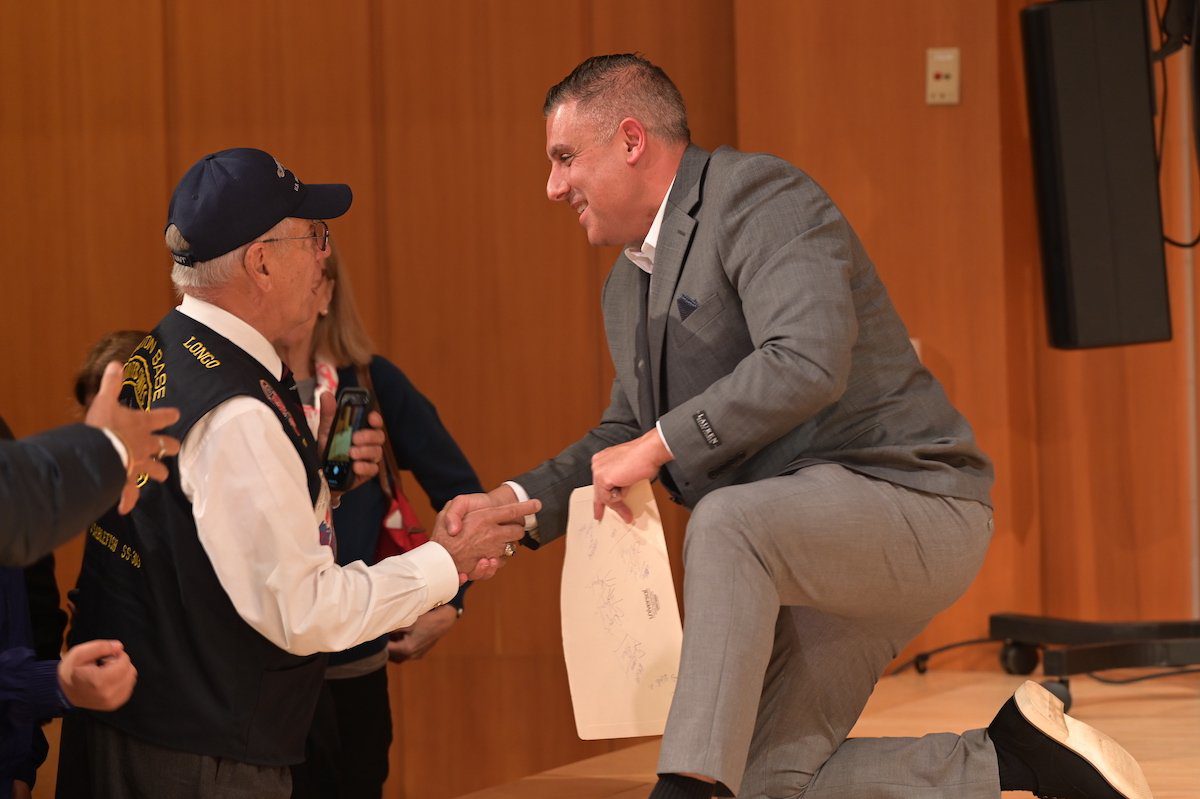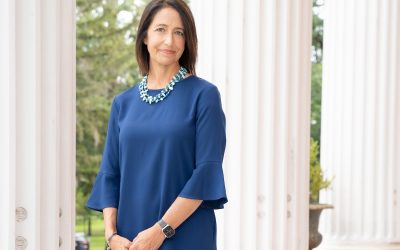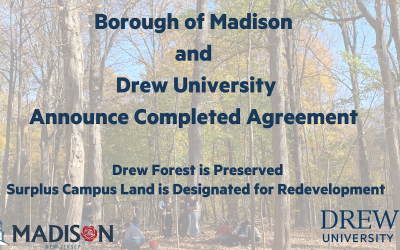Rachel Herrera C’22 provides a student’s view of the event in Drew’s Concert Hall
October 2022 – Drew University played host to the New Jersey District 11 Congressional Debate in the Concert Hall on October 25.
Enlarge

The event was cosponsored by Drew’s Center for Civic Engagement; League of Women Voters of New Jersey; the Montclair and Morris County branches of the NAACP; the New Jersey Hills Media Group; and the Morris County Chamber of Commerce.
Incumbent Mikie Sherrill (D), Paul DeGroot (R), and Joseph Biasco (I) expressed their views and concerns regarding District 11, which includes Essex, Passaic, Sussex, and Morris counties.
The candidates answered nine questions about issues including economic turmoil, trade policies, federal legalization of marijuana, abortion, student loan debt, an obligation to asylum seekers, training and diversification of the police force, the school-to-prison pipeline, disparities and reparations, and outside threats to the U.S.
Pretty heavy stuff.
The atmosphere during the debate was intense – young people to old people, right-wing to left-wing, all types of constituents were represented in the Concert Hall. When one candidate gave an answer, depending on where you were in the room, you heard scoffs or claps (neither of which are allowed as per debate decorum dictates). The deep divide between the residents of District 11 was evident.
Enlarge

Several topics stood out. The first question concerned the candidates’ proposed solutions for inflation, high prices of gas, housing, food, etc.
Biasco suggested that the government should be honest, but also blamed Vladimir Putin. He used his humor to create a chuckle from the audience, which he proceeded to do with almost every question.
DeGroot adopted the idea of energy independence and “opening up the pumps” to make gas more affordable, and then took his first dig at Sherrill for helping to “cause” inflation.
Sherrill responded that inflation is globalized and gas prices have risen because of the unprovoked attack on Ukraine. She promised to lower gas prices and suggested producing more semiconductors, investing in energy independence, and nuclear power.
The question of federal legalization of marijuana and pardoning individuals incarcerated for marijuana charges sparked controversy. DeGroot responded first, saying he is not opposed to federal legalization. He then switched to talking about fentanyl. He said, “It is flooding our southern border,” and called the U.S border “a walk-in.” This felt like a change in subject.
Enlarge

Sherrill responded that convicted nonviolent marijuana offenders should be pardoned, and Biasco agreed.
The topic of abortion was brought up, and each candidate expressed pro-choice stances, though DeGroot and Biasco had tighter standards than Sherrill, who said abortion is between a woman and her doctor.
I was almost certain this topic would come up even in a constitutionally-protected state like New Jersey. As someone who had recently done an internship with Planned Parenthood Action Fund of New Jersey, this question and debate were extremely familiar to me, especially around the topic of morality and viability which all candidates spoke independently on.
Moving forward, there were questions about student loan debt forgiveness and the possible implications for the national deficit. Whether the U.S. was obligated to aid asylum seekers was a topic that the candidates diverged on.
Throughout the debate, I could sense how the candidates were going to answer each subsequent question based on their answer to the previous ones.
Enlarge

The spectrum of political arguments was extensive with each question, making me think about the numerous contrasting perspectives within U.S. politics. After watching the debate and scratching down pages of notes, I still felt on edge.
Attending this debate was very informative and insightful. It truly embodied each candidate and their views. However, the high levels of incivility among the candidates, as well as the audience, was apparent.
I am glad I was given the opportunity to see a local debate like this at my school because it exemplified how each candidate can affect the life of a New Jerseyan, whether they are going to lower or raise your taxes, their interpretation of social problems, or their legislation that is for or against your values and beliefs.
The debate was very enlightening, and the consistent deep division of partisanship within politics that it reinforced sticks with me.
Rachel Herrera C’22 is a sociology and political science double major and a women’s and gender studies minor.

